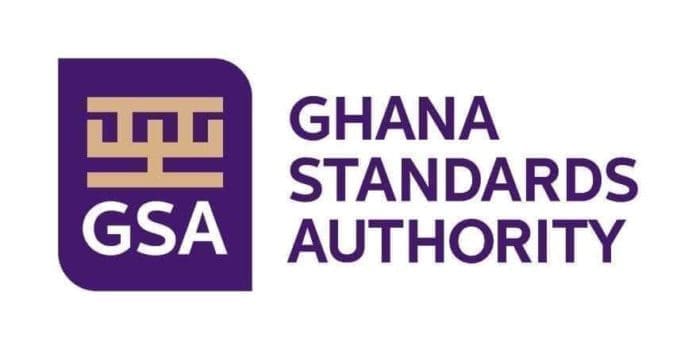Ghana’s economic transformation hinges on something few development conversations adequately address: how systematically the nation integrates quality and safety standards into every production, trade, and service delivery system. The Ghana Standards Authority’s World Standards Day message this week articulates that challenge precisely: standards are not peripheral technical requirements, they’re strategic instruments determining whether Ghana competes or declines in the continental and global marketplace.
Board Chairman Hudu Mogtari positioned it forcefully during GSA’s World Standards Day 2025 celebration on October 14. Standards determine how safe Ghana’s food is, how reliable infrastructure becomes, how competitive exports remain, and how inclusive economic growth can be. That’s not hyperbolic framing. It’s institutional diagnosis of what separates functional modern economies from those struggling to compete.
The urgency connects directly to Ghana’s continental integration. The African Continental Free Trade Area (AfCFTA) creates unprecedented market access for Ghanaian products across 1.3 billion people. But that access means nothing without harmonized quality standards. A cement producer in Accra competing against competitors in Nigeria and Côte d’Ivoire only gains market share if products meet recognized regional standards. A textile exporter accessing West African supply chains only secures contracts if goods comply with specified technical requirements. Those aren’t barriers to trade. They’re foundations enabling it.
What makes this particularly significant is GSA’s emphasis on food safety standards, specifically ISO 22000 certification and aflatoxin regulation in grains and nuts. That sector has opened export opportunities for thousands of Ghana’s farmers and processors. But it’s also created a competitive moat. Ghanaian agricultural exports now carry certification credentials that buyers across Africa and globally recognize. That’s not simply about safety. It’s about market differentiation and value capture. When Ghana’s cocoa, shea butter, or processed grains arrive with validated safety standards, buyers pay premiums. That translates directly to farmer income and rural wealth accumulation.
The infrastructure dimension deserves equal emphasis. When GSA develops and enforces national and international standards for electrical cables, cement, textiles, and countless other products, it’s establishing specifications that manufacturers must meet to access markets. That requirement drives quality culture throughout production systems. Factories invest in better equipment, hire skilled workers, implement process controls, and adopt management systems. Those investments increase productivity and competitiveness simultaneously.
But here’s the structural problem GSA confronts: integrating standards across Ghana’s entire economy requires not just technical authority but ecosystem coordination. GSA issues standards. But manufacturers must choose to adopt them. Traders must demand compliance. Consumers must reward quality. Government procurement must specify standards-compliant inputs. International partnerships must facilitate capacity building. That coordination challenge explains why merely having good standards often produces mediocre outcomes. Implementation requires institutional architecture that GSA alone cannot construct.
GSA has deepened collaborations with the United Nations Industrial Development Organization (UNIDO), the European Union, and local universities to strengthen Ghana’s quality infrastructure. Those partnerships expanded GSA’s laboratory testing capabilities, improved inspection systems, and enhanced certification processes. But the Trade Ministry’s commitment to modernizing GSA laboratory facilities carries deeper significance. It signals government recognition that standards infrastructure requires continuous investment. Laboratory equipment degrades. Testing methodologies evolve. Measurement instruments require calibration. Without sustained funding, GSA’s capacity slowly erodes even with heroic effort.
The youth dimension in GSA’s framing also matters strategically. The 2024/2025 ARSO Essay Competition awards recognized youth and innovation as drivers advancing standards culture. That’s not ceremonial. It’s institutional acknowledgment that lasting standards adoption requires generational change. Younger manufacturers and entrepreneurs who view quality as competitive advantage rather than compliance burden become institutional change agents. When startup founders view ISO certification not as regulatory requirement but business asset, ecosystem mentality shifts.
What’s particularly important about GSA’s positioning of standards as “strategic instruments for national transformation” is how it recasts the conversation. Too often, standards get discussed in compliance language: what manufacturers must do, what inspectors will enforce, what penalties apply. That compliance framing creates adversarial dynamics where businesses view standards as impositions. Strategic framing positions standards as infrastructure enabling value creation. Firms that adopt standards become more competitive, access larger markets, command premium prices, and achieve sustainable profitability.
The export dimension crystallizes the economic logic. When Ghanaian manufacturers produce to recognized international standards, they become immediately eligible for global supply chains that source products meeting specified technical requirements. That’s not theoretical. It’s documented in every sector where Ghana has successfully established standards-compliant production: cocoa processing, pharmaceutical manufacturing, building materials, textiles. The firms that invest in standards compliance scale faster, access export markets, and capture greater value than competitors operating outside formal standards systems.
The challenge Ghana faces now involves moving beyond rhetorical commitment to systematic implementation. That means government procurement actively preferencing standards-compliant suppliers. It means banks offering preferential financing to manufacturers investing in standards compliance. It means educational institutions training the next generation of quality engineers and laboratory technicians. It means consumer education campaigns emphasizing that “Made in Ghana” certification provides quality assurance worth paying for.
Without that ecosystem coordination, GSA’s work remains technically excellent but economically marginal. Alternatively, if Ghana systematically integrates standards throughout its production, trade, and service delivery systems, the economic multiplier becomes substantial. Export competitiveness improves. Domestic consumers gain protection. Manufacturers gain market access. Agricultural productivity improves. Employment expands in quality-intensive sectors.
That’s what GSA is actually arguing: that standards infrastructure is as fundamental to Ghana’s economic transformation as energy infrastructure, digital connectivity, or transportation networks. It’s an argument worth taking seriously because it’s largely true.
Source: newsghana.com.gh











